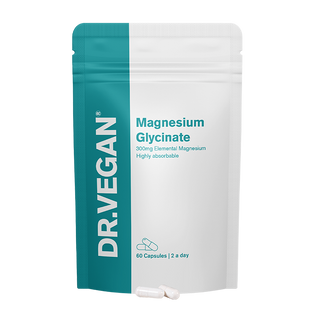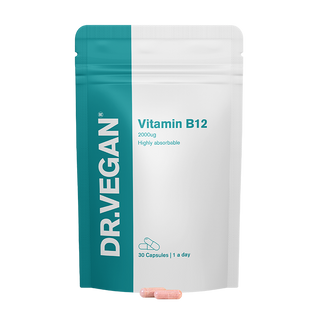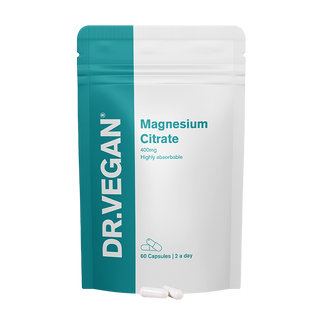Magnesium and ADHD: All you need to know

Attention-deficit / hyperactivity disorder (ADHD) is a condition affecting around 3-4% of adults and 5% of children in the UK. The causes of ADHD are still not fully understood, but scientists suggest genetic, environmental, maternal, prenatal, and perinatal risk factors.
Current treatment approaches may be multimodal and include behavioural support, stimulant medications such as methylphenidate (Ritalin) or non-stimulant drugs such as atomoxetine. Additionally, healthcare professionals may recommend psychological or dietary therapies. Nutritional interventions such as supplements are potential complementary strategies to support ADHD that are gaining increasing attention.
Louisa Richards discusses the link between ADHD and magnesium, how the supplement may influence symptoms, what the research says and considerations to be aware of.
What is the link between magnesium and ADHD?
Magnesium is a mineral that plays a role in over 300 metabolic reactions involving protein and DNA synthesis, energy production, blood pressure, and muscle contraction.
In the nervous system, magnesium is vital for nerve transmission and neuromuscular coordination. It protects against increased glutamatergic signalling, which leads to excitotoxicity, oxidative stress, and cell death. Dysfunctional glutamatergic neurotransmission has been linked to neurological and psychiatric conditions, and oxidative stress is associated with ADHD.
As well as attenuating oxidative stress, magnesium plays a role in the metabolism of essential fatty acids and the production of serotonin, dopamine, and other neurotransmitters, which support healthy brain activity. You may also enjoy reading 'Happy hormones explained'.
Evidence suggests that magnesium deficiency may lead to fatigue, a lack of concentration, nervousness, mood swings, and aggression – symptoms which may be common in ADHD.
What does the research say?
There are a number of studies evaluating magnesium levels in people with ADHD and how supplementation may affect their symptoms. For example, a 2023 review concludes an inverse relationship between serum magnesium deficiency and ADHD.
A 2020 review notes a correlation between magnesium status and ADHD but highlights a lack of evidence for supplementing in ADHD populations that are not magnesium deficient. In addition, another review found mixed results of studies investigating a link between ADHD and magnesium due to differing methodologies and study populations.
While some studies report a link between magnesium deficiency and ADHD, the expert consensus seems to be that a direct cause-and-effect relationship has not been established, and further large-scale trials need to be conducted to draw definitive conclusions on magnesium's role in ADHD.
Do ADHD medications deplete magnesium?
Research indicates that people with ADHD may have lower magnesium levels, but whether this is due in part to their medications is not clear.
However, ADHD UK advises that there is currently insufficient evidence for the effectiveness of supplements for ADHD and, importantly, their safety and interaction have not been adequately tested. Therefore, someone should speak to their doctor before taking supplements with ADHD.
Are there any other vitamins or minerals that can help ADHD?
Evidence suggests that micronutrient deficiencies may contribute to dysfunction in the prefrontal cortex and other brain regions that are involved in ADHD. Scientists have proposed associations between ADHD symptoms and magnesium, iron, zinc, copper, and selenium levels, but the findings are inconclusive.
Vitamin D plays a key role in the functioning of the nervous system, and a randomised controlled trial found that supplementing 50,000 IU/week of vitamin D and 6 mg/kg/day magnesium for eight weeks was associated with a significant improvement in markers of behavioural function and mental health in 66 children with ADHD. Learn more about why vitamin D is so important.
Since it is difficult to obtain vitamin D through sunlight or diet, especially in the shorter days in the UK, the NHS advises everyone to consider taking a vitamin D supplement during autumn and winter. Another study suggested that pre-treatment nutrient deficiencies in vitamin D and copper and lower initial B12 and folate were possible predictors of greater improvement for children taking micronutrient supplementation, although the association was weak. Discover five signs you may be low in vitamin B12.
In addition, probiotics may be a preventative and therapeutic strategy for ADHD by influencing the gut-brain axis, but large-scale trials are needed to confirm this. Learn more about the gut-brain axis here.
Further considerations
The amount of magnesium that experts suggest adults need is 300mg a day for men and 270mg a day for women, advising that doses of more than 400mg may cause diarrhoea.
Good sources of dietary magnesium are nuts and seeds, green leafy vegetables, and wholemeal bread.
There are different types of magnesium, including Magnesium Citrate, a common and easily absorbed form, and magnesium glycinate, which is more bioavailable and known for its calming effects. Magnesium sulphate, sold as Epsom salts, can be added to a bath and absorbed through the skin.
There are different types of magnesium supplements, including tablets, powders, drinks, and sprays, and they may have varying effects depending on the type of magnesium, the dosage, and the time of day it is taken.
It’s essential to check with a healthcare provider if someone is taking medications, so as not to exceed recommended dosages or cause safety issues due to drug interactions.
About Louisa Richards
Louisa Richards is a degree-qualified Nutritional Therapist and freelance health writer. She has worked with clients with a wide range of health issues, helping them make changes to their diet and lifestyle, using her NLP coaching background as an additional tool.
She currently writes for Nutraingredients.com, the leading B2B news source for the nutrition industry, and previously wrote for Medical News Today for many years. She’s also been a health editor at Plant Based News and The Beet.
Louisa is vegan and has been plant-based for most of her life, raising vegan kids, and having a commitment to promoting veganism as an ethical and healthy choice.
View our range of award-winning probiotics, vitamins and supplements.
You may also enjoy reading:



















